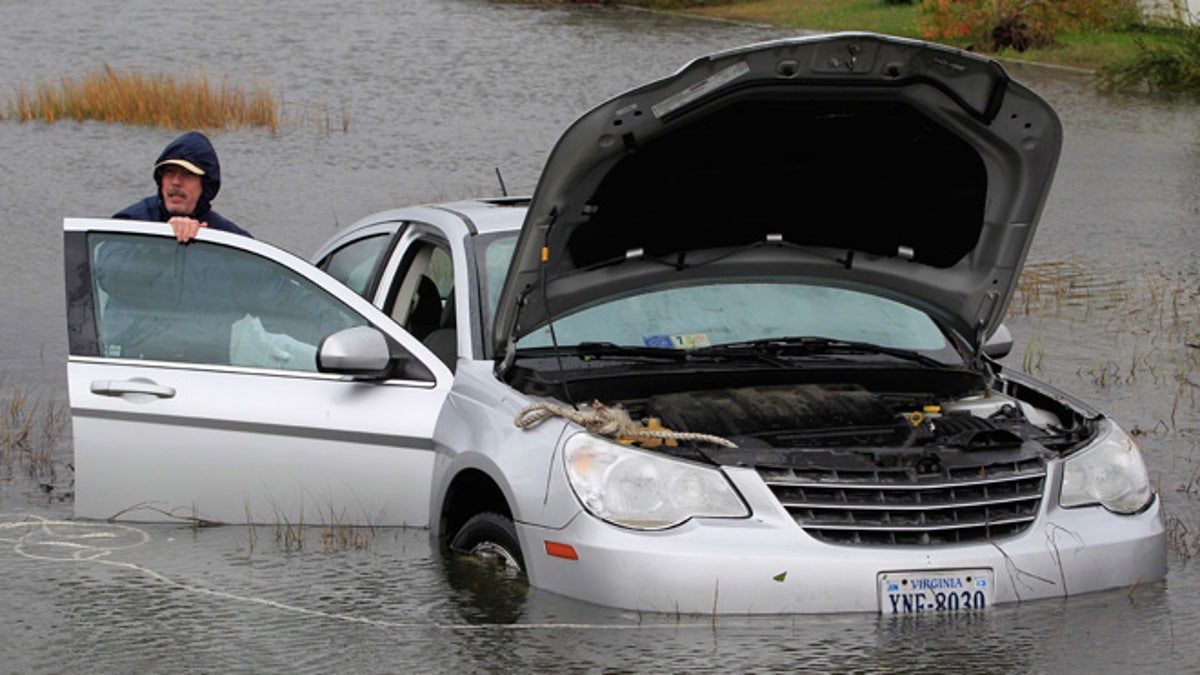
(AP)
More than a quarter of a million cars and trucks were damaged during Superstorm Sandy, and many of them are back on the road or on used car lots a year later, posing a possible threat to unsuspecting shoppers.
According to vehicle history report provider Carfax, it’s not uncommon for 50 percent of the cars affected by floods to return to service, some requiring only minor repairs, others a full overhaul.
But the most severely damaged vehicles, those declared salvaged by their insurance carriers, can put used car shoppers at risk, as less reputable dealers try to sell them without full disclosure, or through outright fraud.
These cars are typically unloaded at auctions to be used for parts, or exported to countries with lower safety standards than the U.S. They can, however, be repaired and issued clearly-marked “salvage” titles that must remain with them for the rest of their operational lives.
That is, of course, if the parties involved have gone through the proper channels. According to the National Insurance Crime Bureau (NICB,) it’s not uncommon for shady operators to go to states with less restrictive regulations governing vehicle registrations to score clean titles for their dirty cars, then return to sell them to unsuspecting customers.
These transactions often take place through classified ads or on street corners, but sometimes at otherwise legitimate looking car dealerships. Unfortunately, it’s usually up to the customer to sniff out a raw deal. Both Carfax and NICB provide free online Vehicle Identification Number searches that will tell you if a vehicle has ever been reported as flood damaged, regardless of its latest title, although this only applies to vehicles for which an insurance claim was made.
NICB currently has dozens of active investigations nationwide related to Sandy, but says that issues often aren’t uncovered until the vehicles are involved in another incident. Consumer protection agencies in New York and New Jersey, the two states hardest hit by the storm, report receiving only a handful of complaints about scams, so far. But a Carfax spokesperson says victims are often too embarrassed to report this kind of activity, and that it could be more widespread than in first appears.
A representative for the New York Attorney General’s office would not comment on any specific investigations, but said the agency is actively monitoring the situation.
Along with the financial and legal hassles that can go along with buying an improperly registered vehicle, flood-damaged cars present several potential safety and health hazards to passengers including faulty electrical systems that can lead to stalling and fires, as well as persistent mold and bacteria infestation.
Experts agree that if a deal on a car seems to good, it probably is, and it’s worth putting in the due diligence before you buy.
Along with getting a history report, AAA offers several suggestions for spotting a flood-damaged vehicle like damp or musty odors; signs of mud or dirt in hard to reach areas, particularly on an otherwise very clean car; rust or corrosion on newer vehicles; and any obvious electrical glitches.
And as with any used car, if you’re not sure about it, AAA recommends bringing it to a professional mechanic for an inspection. If the person or shop selling it to you is on the up and up, they won’t mind at all. If they do, that could be the best sign that you’re about to enter a bad deal.